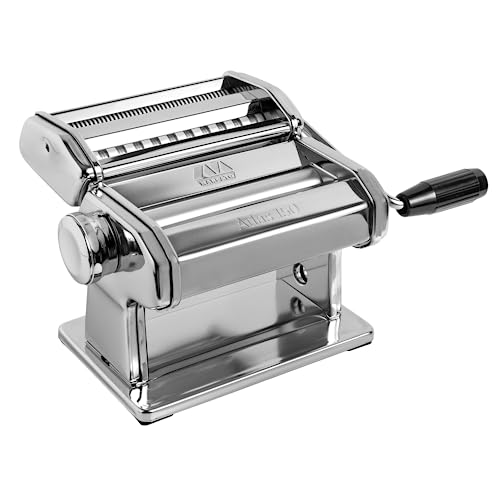Are Pasta Machines Noisy?
If you are a pasta enthusiast or an aspiring pasta chef, you may have considered purchasing a pasta machine. These machines are a popular tool for making homemade pasta, allowing you to create various shapes and thicknesses of pasta easily. However, before making the purchase, you may be wondering if pasta machines are noisy. In this article, we will explore the noise factor associated with pasta machines and provide you with a better understanding of what to expect.
The Operation of Pasta Machines
A pasta machine is a manual or electric kitchen appliance used to roll and cut pasta dough. It typically consists of rollers and cutters that can be adjusted to achieve the desired thickness and shape of the pasta. The machine applies pressure to the dough as it passes through the rollers, gradually thinning it out.
Noise Levels
When it comes to noise, manual pasta machines tend to be less noisy compared to electric ones. Manual machines rely on physical force to roll and cut the pasta dough, resulting in minimal noise. The sound produced is usually a gentle humming or the movement of gears, which is not disruptive or bothersome.
On the other hand, electric pasta machines rely on a motorized mechanism to roll and cut the dough. As a result, they tend to be louder compared to manual ones. The noise level can vary depending on the specific model and brand. Some electric pasta machines are designed to operate quietly, while others may produce more noticeable noise.
Factors Influencing Noise
Several factors can affect the noise levels of a pasta machine. These factors include the quality of materials used, the design and engineering of the machine, and the speed at which it operates. Higher-quality pasta machines tend to be quieter as they are well-constructed with noise-reducing features. Cheaper or lower-quality machines may produce more noise due to the use of inferior materials and less attention to noise reduction techniques.
The design and engineering of the machine also play a role in determining the noise levels. Machines that are engineered for smoother operation and reduced friction are likely to be quieter. Additionally, machines that offer multiple speed settings allow you to choose a slower speed that may result in less noise.
Reducing Noise
If noise is a concern for you, there are steps you can take to reduce the noise produced by a pasta machine. First, consider investing in a higher-quality machine known for its quiet operation. Read product reviews and look for models specifically advertised as being quiet. These machines may have noise-reducing features or insulation to dampen the sound.
Another option is to place a rubber or silicone mat underneath the machine. This can help absorb vibrations and reduce noise during operation. Additionally, operating the machine on a stable surface, such as a countertop or table, can minimize noise by preventing any rattling or shaking.
Lastly, if you have an electric pasta machine, try using it on a lower speed setting. Slower speeds are generally quieter compared to faster speeds. However, keep in mind that the pasta may take longer to be prepared.
In summary, whether a pasta machine is noisy or not depends on several factors such as manual or electric operation, quality of materials, design, and speed. Manual pasta machines tend to be quieter, while electric ones may produce more noise. Investing in a higher-quality machine known for its quiet operation and using a rubber or silicone mat can help reduce noise. Overall, while there may be some noise associated with pasta machines, it is generally not excessive or disruptive.






